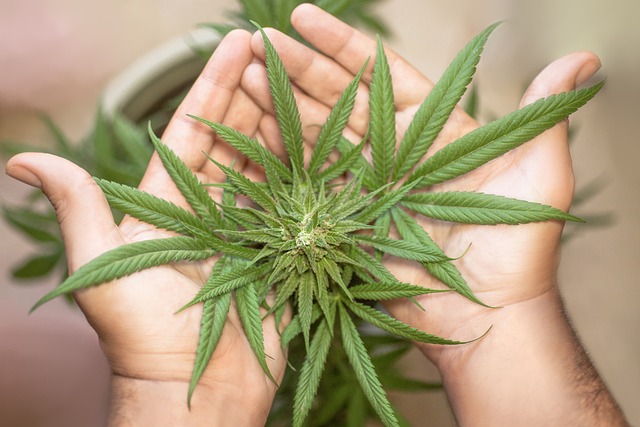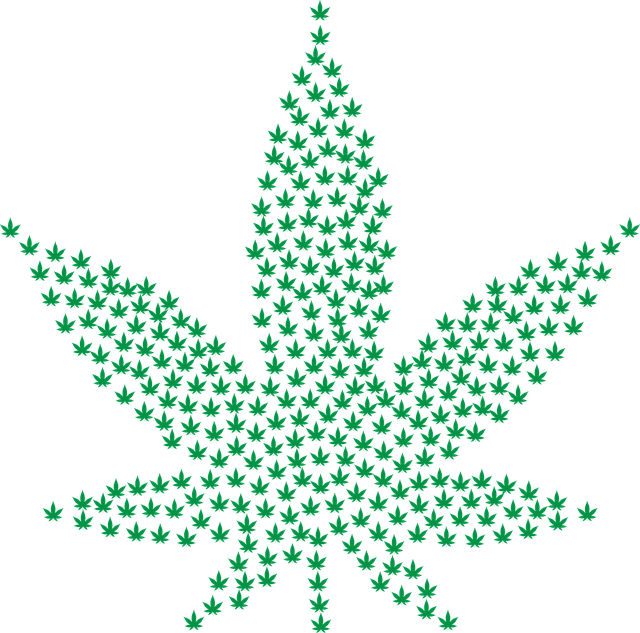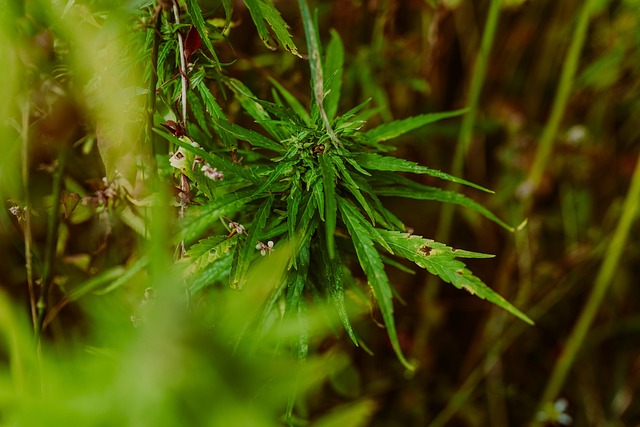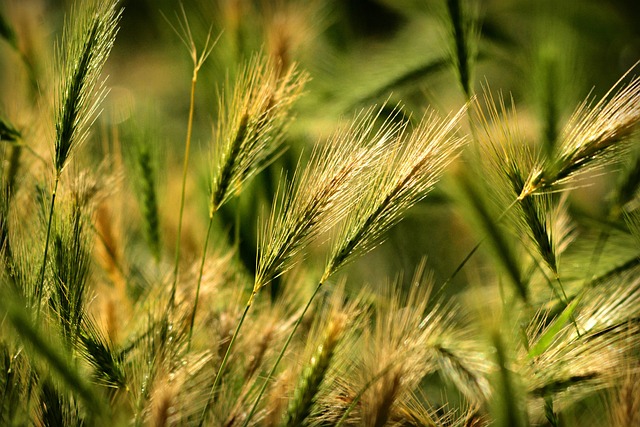2023 marked a significant shift in the recognition and legal status of THCA (Tetrahydrocannabinolic Acid) as a non-psychoactive cannabinoid with potential therapeutic properties. In Rhode Island, THCA has been legally recognized, allowing for its inclusion in recreational and medicinal cannabis programs. This move reflects a broader trend towards the legalization and commercialization of specific cannabinoids, offering consumers a range of products tailored to their health needs without the intoxicating effects associated with THC. THCA is celebrated for its anti-inflammatory, neuroprotective, and potential anti-proliferative effects, making it an attractive option for those seeking wellness support or alternative treatments. In Rhode Island, consumers can now legally access THCA flowers, infused products, or concentrated extracts, contributing to a growing body of research on its therapeutic applications. As THCA's legal standing in Rhode Island paves the way for further exploration, it underscores the evolving landscape of cannabis legislation and consumer choice in the United States.
Explore the emerging landscape of THCA flower, a natural cannabinoid compound that’s capturing attention for its potential wellness benefits and therapeutic uses. As we delve into the intricacies of THCA’s legal status across the United States with a focus on Rhode Island, uncover how this non-psychoactive form of cannabis is carving out a significant niche in the cannabis market. This article will guide you through the nuances of THCA flower, from its cultivation to its effects, and provide practical advice for growers, buyers, and consumers in Rhode Island. Discover the differences between THCA and other cannabinoids, the role of terpenes, and how proper storage can maintain its potency. With a comprehensive overview of legal considerations, retail options, and user experiences, stay informed on the latest trends and regulatory updates concerning THCA flower’s status and future within Rhode Island and beyond.
- Understanding THCA Flower: The Natural Compound Gaining Momentum
- THCA Legal Status: A State-by-State Overview with Focus on Rhode Island
- The Rise of THCA Flowers in the Cannabis Market
- Benefits of THCA Flower for Wellness and Potential Therapeutic Uses
- How THCA Flower Differs from Other Cannabinoids: A Closer Look
Understanding THCA Flower: The Natural Compound Gaining Momentum

2023 has seen a significant rise in interest surrounding THCA, or tetrahydrocannabinolic acid, a natural compound found in cannabis and hemp plants that retains the full range of potential therapeutic benefits before heat is applied to convert it into THC. As legislative changes continue to reshape the landscape of cannabis legality, enthusiasts and researchers alike are turning their attention to the unique properties of THCA. In Rhode Island, where the legal status of THCA-rich products has been clarified, consumers and businesses are exploring the full spectrum of cannabinoids with increasing curiosity and demand. The interest in THCA stems from its promising therapeutic profile, which includes anti-inflammatory, anti-nausea, anti-anxiety, and neuroprotective properties without the psychoactive effects that characterize delta-9-THC. As such, THCA is being hailed as a versatile compound with a wide range of potential applications, from wellness to medical treatment. Its emergence in the market is indicative of a broader shift towards more nuanced and specific cannabinoid products, offering consumers a chance to engage with the plant’s complex chemistry in new ways. With Rhode Island setting a precedent for the legal inclusion of THCA in its cannabis regulations, the compound is gaining momentum as an alternative to traditional THC-dominant products, potentially opening up new avenues for wellness and health. As this trend continues to evolve, it’s clear that THCA flower tips are becoming increasingly relevant, not just for their practical use but also for how they represent a growing body of knowledge about the therapeutic potential of cannabinoids.
THCA Legal Status: A State-by-State Overview with Focus on Rhode Island

In the realm of cannabis legislation, the legal status of tetrahydrocannabinolic acid (THCA) varies significantly across the United States. THCA is the non-psychoactive precursor to THC, the primary psychoactive component of cannabis. As of the knowledge cutoff in 2023, many states have legalized THCA for medical and/or recreational use, while others maintain strict prohibitions. Rhode Island, situated in the New England region of the U.S., has a nuanced approach to cannabis derivatives, including THCA. In 2022, Rhode Island legislators passed the Rhode Island Cannabis Act, which legalized the possession, cultivation, and gifting of cannabis for adults 21 and older. This act specifically includes THCA within its scope, allowing for its use in various forms as long as it adheres to state regulations. The Act also sets forth guidelines for the commercial production and sale of cannabis products, including those containing THCA, paving the way for a regulated market that aligns with the evolving legal landscape.
Navigating the legality of THCA can be complex due to the patchwork of laws at both the federal and state levels. While the 2018 Farm Bill legally defined hemp derivatives, including CBD and THCA, federal law still classifies THC as a Schedule I controlled substance. This dichotomy has resulted in a landscape where states like Rhode Island can set their own policies regarding cannabis compounds. Rhode Island’s approach is indicative of a broader trend towards decriminalization and regulation within the U.S., reflecting a shift in public opinion and policy priorities. As such, residents and visitors to Rhode Island should be aware that THCA products are legal under state law but subject to specific regulations regarding concentration limits, labeling requirements, and sale through licensed establishments. Always verify current local laws and regulations before purchasing or using THCA products in any state.
The Rise of THCA Flowers in the Cannabis Market

In recent years, THCA (Tetrahydrocannabinolic Acid) flowers have gained significant traction in the cannabis market, particularly as legislation evolves to include more cannabinoids within legal frameworks. Rhode Island has been at the forefront of this shift, with THCA now recognized as a legal entity within its recreational and medicinal cannabis programs. This has opened up new opportunities for consumers to explore the potential benefits of raw cannabis, which contains THCA in its natural form. Unlike its psychoactive counterpart THC (Tetrahydrocannabinol), THCA is non-psychoactive, offering a range of wellness effects without the traditional ‘high.’ This has led to a surge in interest for THCA flowers as an alternative or complementary product to other cannabis derivatives.
The rise of THCA flowers is not merely a trend but a reflection of a growing demand for more nuanced cannabis products. Consumers are increasingly looking for specific cannabinoid profiles to meet their wellness and therapeutic needs. In Rhode Island, where the legal landscape has adapted to accommodate these preferences, THCA flowers have become a staple in both dispensaries and home gardens. The versatility of THCA flowers allows for various consumption methods, including smoking, infusion into edibles, or extraction into concentrates, providing a wide array of choices for the consumer. As the market continues to expand and educate on the unique properties of THCA, its prominence is set to grow even further, solidifying its place as a key player in the evolving cannabis industry.
Benefits of THCA Flower for Wellness and Potential Therapeutic Uses

THCA, or Tetrahydrocannabinolic Acid, is a non-psychoactive cannabinoid found in hemp and cannabis plants that is gaining attention for its potential health benefits. As of my knowledge cutoff in early 2023, THCA is recognized as legal in Rhode Island under state law, joining a growing list of states embracing the therapeutic properties of cannabinoids. Preliminary research suggests that THCA may offer a range of wellness benefits due to its interaction with the body’s endocannabinoid system. This includes anti-inflammatory and neuroprotective effects, which could be beneficial for managing conditions like arthritis or neuropathic pain. Additionally, THCA flower, the raw form of the plant before heat is applied to convert it into THC, is thought to have a lower psychotropic profile than its decarboxylated counterpart, making it an appealing option for individuals seeking wellness support without psychoactive effects.
In the realm of therapeutic uses, THCA is being explored for its potential role in supporting overall health. It’s been studied for its possible impact on appetite stimulation, nausea alleviation, and as a potential antiemetic agent, which could be beneficial for individuals undergoing treatments like chemotherapy. Furthermore, the anti-proliferative properties of THCA are of interest to researchers who are looking into its potential role in cancer prevention and treatment, although more conclusive human studies are required to substantiate these findings. In Rhode Island, where THCA is legal, consumers have access to products that can be incorporated into various wellness routines, from smoking or vaping the raw flower to infusing it into edibles or topical applications. As with any supplement or medication, it’s important for individuals to consult with healthcare professionals before incorporating THCA into their health regimen.
How THCA Flower Differs from Other Cannabinoids: A Closer Look

THCA, or tetrahydrocannabinolic acid, is a naturally occurring cannabinoid found in the Cannabis sativa plant, and it holds a unique position among its counterparts. Unlike other cannabinoids such as THC (tetrahydrocannabinol) and CBD (cannabidiol), THCA maintains its psychoactive properties only when raw or preserved in a non-decarpboxylated state. When exposed to heat or light, THCA undergoes a process called decarboxylation, converting into THC, which is the form most commonly associated with the ‘high’ experienced by cannabis users. This transformation is significant because it alters the compound’s effects and interactions within the body’s endocannabinoid system.
In Rhode Island, where regulations have deemed THCA-rich hemp flowers legal, enthusiasts and researchers alike are exploring the potential benefits of this non-intoxicating cannabinoid. Unlike THC, which is psychoactive and may be subject to stricter regulations in certain jurisdictions, THCA is often considered a more approachable option for those curious about the therapeutic properties of cannabinoids without the mind-altering effects. Studies suggest that THCA might offer anti-inflammatory, analgesic, and neuroprotective qualities, making it a subject of interest in various wellness and health applications. As research continues to unfold, the understanding of how THCA interacts with the human body’s receptors and its potential benefits becomes clearer, offering an intriguing alternative within the broader cannabinoid spectrum.
In conclusion, the emerging interest in THCA flower has carved a notable niche within the cannabis landscape, offering wellness enthusiasts and those seeking therapeutic benefits a unique cannabinoid experience. As we’ve explored, THCA’s legal status varies by state, with Rhode Island positioning itself as a prime example where THCA flower is legally permitted, opening doors for both consumers and businesses alike. The distinct properties of THCA set it apart from other cannabinoids, presenting a promising alternative within the broader spectrum of cannabis products. As regulations evolve and research progresses, the potential applications of THCA are poised to expand, further cementing its place in the wellness realm and beyond. Those intrigued by the therapeutic properties of THCA should consult local laws, particularly in Rhode Island, where its legality is clear, ensuring a responsible engagement with this burgeoning market.
